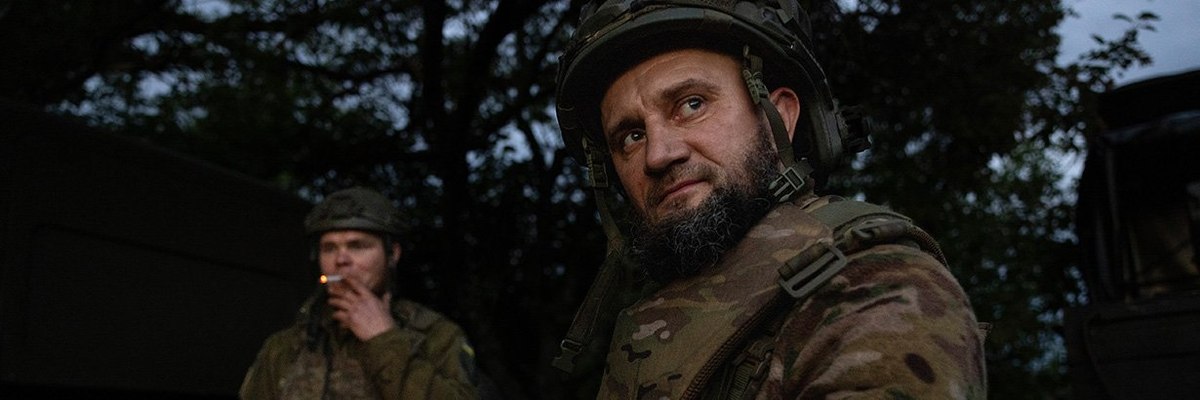Fewer Britons expect a peace deal is likely than did so earlier this year
Donald Trump and Vladimir Putin are set to meet in Alaska tomorrow to discuss a potential resolution to the Ukraine war. While the US president has threatened “very severe consequences” if his Russian counterpart doesn’t agree to a ceasefire, there are concerns that Trump is willing to force Ukraine to accept a deal that heavily favours Russia.
A new YouGov survey examines public expectations regarding a peace deal, as well as public willingness to continue supporting Ukraine.
What do Britons expect regarding a peace deal?
Two thirds of the public (66%) think it likely that any peace deal agreed between the US and Russia would leave Russia in control of some areas of Ukrainian territory.
This is an outcome that most Britons (57%) would react negatively to.
However, the public are increasingly sceptical that a peace deal will come to pass – only 35% now think it is likely that the US and Russia will agree a deal between themselves in the next few months for an end to the war (regardless of whether Ukraine accepts). This figure is significantly reduced from the 55% who thought such an outcome was probable in February of this year, shortly ahead of US-Russia talks in Saudi Arabia.
Regardless, only 18% think that Ukraine will accept any US-Russia brokered peace deal, a figure largely unchanged since our previous poll.
Separately, our survey also finds that, if Ukraine did accept a peace deal, 65% think the Russians would probably launch another war against them in the next 10 years – and most Britons (57%) also think Russia is likely to attack other European countries in the next decade.
Britons still favour supporting Ukraine to fight rather than encouraging a negotiated peace
Almost half of Britons (45%) say their preferred approach for the West to take on the conflict would be “to support Ukraine in its efforts against Russia until such a time that Russia withdraws from the country, even if this means the war and its effects last longer”.
This is lower than the 53% we recorded in February 2023 – the first time we asked the question – although it continues to significantly outnumber the 27% whose preferred option is “to encourage a negotiated peace to end the fighting, even if this means Russia still has control over some parts of Ukraine”.
That figure is slightly higher than the 23% we first recorded in early 2023, while also being slightly down from a peak of 32% in late 2024.
Desire for Ukraine to triumph remains strong in Britain
Eight in ten Britons (80%) say they want Ukraine to win the war, with 87% of this group saying they care a great deal or fair amount that it does so. These figures combined mean that 69% of Britons want Ukraine to win AND care that it does. This sentiment has remained relatively steady since we started asking in 2023.
Only 3% of Britons want Russia to win.
Britons acknowledge that western support is not enough to prevent a Russian victory, but few are willing to countenance providing greater support
Just 9% of Britons think that measures taken by the West against Russia are enough to prevent the Putin from winning in Ukraine. By contrast, two thirds say not enough support is being provided (65%), including 36% who say the level of assistance is “not nearly enough”.
Yet despite wanting Ukraine to win, and thinking it is not being given adequate support to do so, only 24% of the public want to see the UK increase the amount of assistance it is providing.
Even among those who say they care that Ukraine wins the war, the number saying they want the UK to bump up its levels of assistance only stands at 33%.
Overall, 43% of the public want to maintain current levels of support for Ukraine, while 14% would see them reduced.
What kinds of support for Ukraine do Britons back?
The large majority of Britons (75%) continue to support maintaining current sanctions against Russia, with 70% also willing to see further economic sanctions imposed on Russian interests in Britain.
Most support sending additional weaponry and supplies to Ukraine (59%) and half support sending additional troops to support NATO members in Eastern Europe (51%).
When it comes to more aggressive actions, almost half support cyber attacks against Russian military capabilities (46%), but far fewer support air strikes against Russian targets in Ukraine (33%) or sending troops into the country (22%).
Reform UK voters differ in their views of the Ukraine conflict
Previous surveys have shown that Reform UK voters differ significantly in their views on the conflict to other voters, and this survey is no exception.
For instance, while 78-86% of Labour, Lib Dem, Green and Conservative voters say they want Ukraine to win, and that it matters a great deal or fair amount to them that they do so, this figure falls to just 52% of Reform UK voters.
Reform voters are similarly less likely to want to increase or maintain support to Ukraine, to say they would react negatively to a peace deal that left Russia in control of conquered territory, or to suspect that Russia is likely to cause more conflict in the next decade.
What do you think about the Ukraine war, the threats to peace in Europe more generally, and everything else? Have your say, join the YouGov panel, and get paid to share your thoughts. Sign up here.
Photo: Getty












